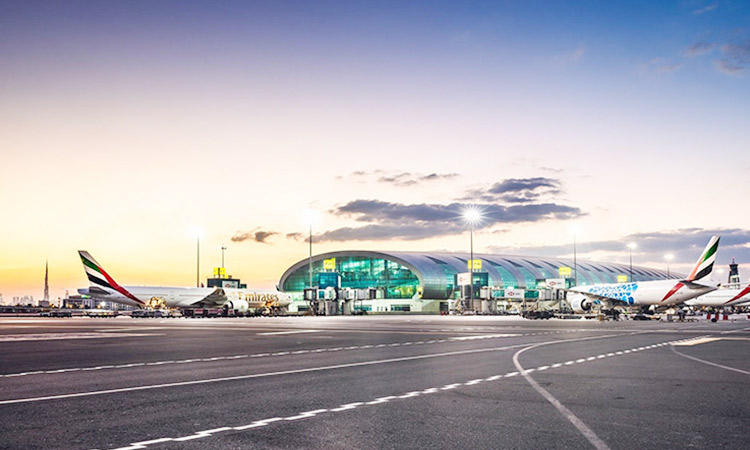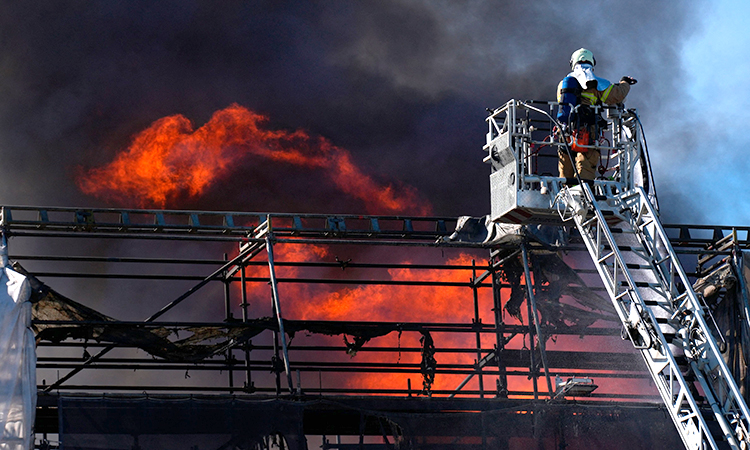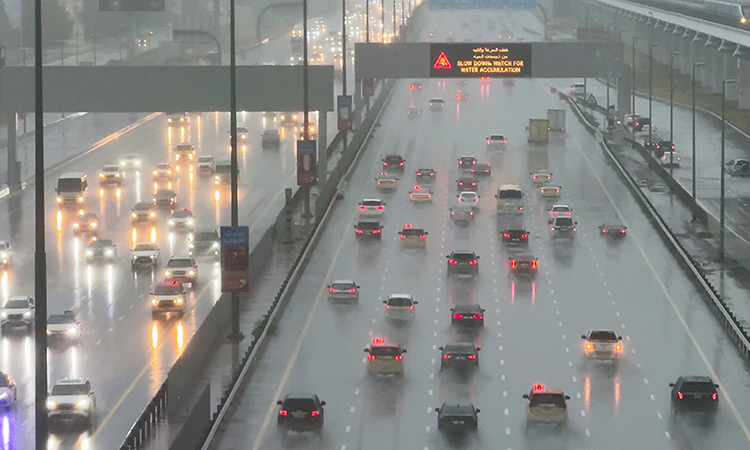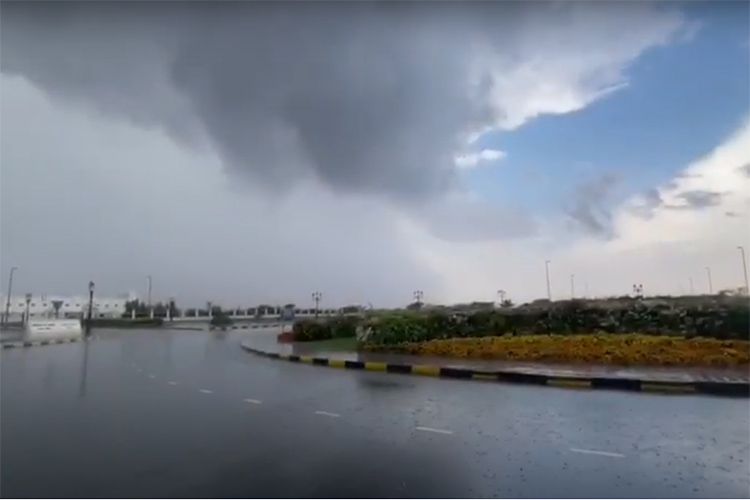SDF calls for international court to try Daesh militants
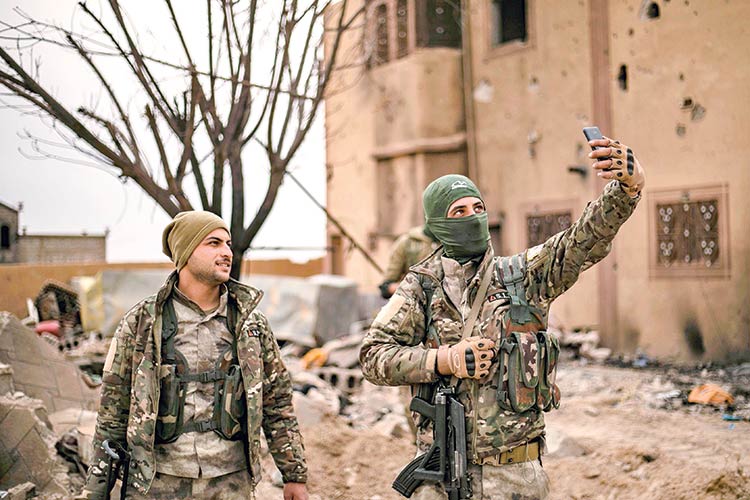
Members of the Syrian Democratic Forces take a selfie in the village of Baghouz in Syria on Sunday. Agence France-Presse
Daesh imposed its brutal interpretation of Islam on millions living in the proto-state that it declared across a large swathe of Syria and neighbouring Iraq in 2014.
The extremists stand accused of carrying out numerous crimes including mass executions, kidnappings and rape.
“We call on the international community to establish a special international tribunal in northeast Syria to prosecute terrorists,” the Syria Kurdish administration said.
In this way, “trials can be conducted fairly and in accordance with international law and human rights covenants and charters”, it said in a statement.
The Kurdish-led Syrian Democratic Forces (SDF) on Saturday announced the end of the “caliphate” after defeating Daesh militants in the eastern village of Baghouz near the Iraqi border.
Kurdish-led forces, backed by a US-led coalition, have detained thousands of suspected Daesh fighters in more than four years battling the militants, including around 1,000 foreigners.
While alleged Daesh fighters are held in jail, women and children suspected of being affiliated to the group are housed in Kurdish-run camps for the displaced.
More than 9,000 foreigners, including over 6,500 children, are being held in the overcrowded main camp of Al Hol, Kurdish spokesman Luqman Ahmi said on Monday, citing figures from a week ago.
The Kurdish administration has repeatedly called for the repatriation of foreign Daesh suspects, and warned it does not have capacity to detain so many people.
But the home countries of suspected Daesh members are reluctant to take them back, due to potential security risks and the likely public backlash.
“The Kurdish administration in northeast Syria has appealed to the international community to shoulder its responsibilities towards members of the terrorist organisation detained by Kurdish security forces,” it said Monday.
“But unfortunately there was no response.”
It urged the international community, particularly countries that have nationals detained, to support the establishment of an international tribunal, calling for legal and logistical cooperation and coordination.
Previous international courts include the International Criminal Tribunal for Rwanda which tried genocide perpetrators in the African country.
The International Tribunal for the Former Yugoslavia meanwhile tried those accused of genocide, crimes against humanity and war crimes in conflicts that tore apart the Balkans in the 1990s.
Tens of thousands of people streamed out of the last Daesh pocket on the eastern banks of the Euphrates in recent months, sparkling a humanitarian crisis.
The camp in Al Hol is now bursting at the seams, housing more than 70,000 people − in a place designed for just 20,000.
“Humanitarian conditions in Hol camp are extremely critical,” World Food Programme spokeswoman Marwa Awad said on Monday.
The Kurdish administration called on the United Nations to improve living conditions in the Al Hol camp, accusing UN bodies of responding poorly to the massive influx of women and children to the shelter.
It particularly appealed to UN bodies to provide increased humanitarian assistance as well as support efforts to expand the camp, establish medical points and clinics, and enhance water supply and sewage networks.
Despite the declared victory against Daesh in Baghouz, the militants still maintain a presence in the country’s vast desert and have continued to claim deadly attacks in SDF-held territory.
The SDF has been fighting Daesh since 2014 and has retaken large areas in northern and eastern Syria. Its administration is not recognized internationally or by the Syrian government, which has vowed to bring all the country’s territory back under its control.
The Kurdish-led administration has asked the government to grant it autonomy in a new constitution, something Damascus has roundly rejected.
Syria’s war has killed more than 370,000 people and displaced millions since starting in 2011 with the brutal repression of anti-government protests.
Agencies
